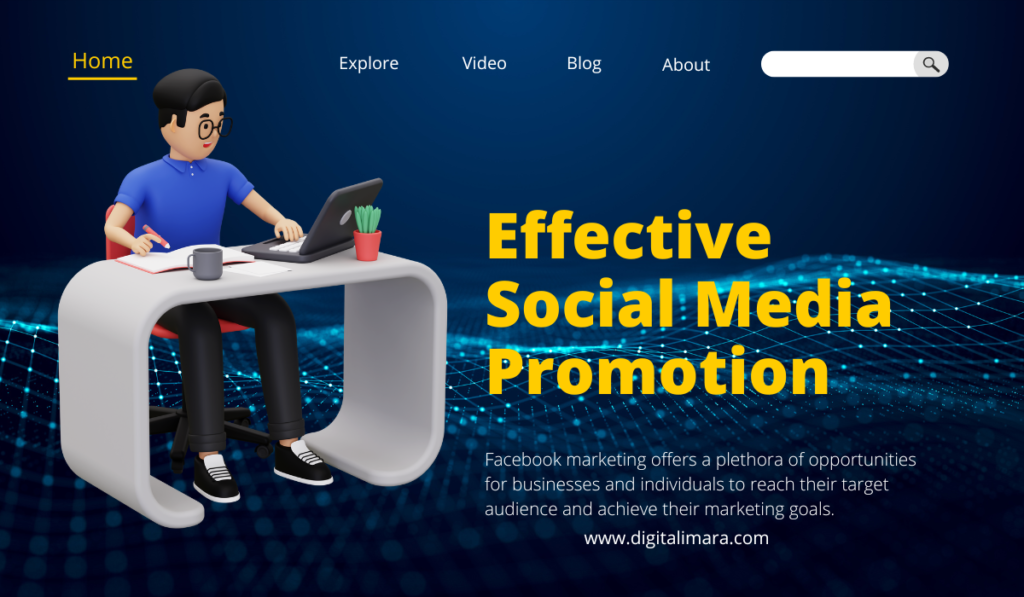
Topic: Facebook Marketing: Strategies for Effective Social Media Promotion
Introduction: With its massive user base and diverse demographic reach, Facebook remains a powerhouse in digital marketing. Crafting an effective Facebook marketing strategy is crucial for businesses and individuals looking to promote their products, services, or personal brands. This topic delves into the key strategies and best practices for successful Facebook marketing campaigns.
Understanding Facebook’s Algorithm: To effectively market on Facebook, it’s essential to comprehend how its algorithm works. The algorithm determines what content appears on users’ feeds. Factors such as engagement, relevancy, and post type influence this process. Exploring the intricacies of the algorithm helps marketers tailor their content to maximize visibility.
Defining Your Target Audience: Identifying and understanding your target audience is the foundation of any marketing strategy. Facebook offers detailed demographic and interest-based targeting options that allow you to narrow down your audience to those most likely to engage with your content. Tailoring your content to resonate with your target audience increases the likelihood of conversions.
Compelling Content Creation: High-quality content is at the heart of successful Facebook marketing. This includes a mix of text, images, videos, and interactive elements. Engaging content captivates users and encourages them to like, share, and comment, thus increasing your organic reach.
Leveraging Facebook Ads: Facebook Ads provide a powerful tool for reaching a larger audience beyond your existing followers. Marketers can create highly targeted ad campaigns based on various criteria. This section will cover ad formats, bidding strategies, and budget allocation.
Video Marketing on Facebook: Video content has gained significant traction on Facebook. The platform’s autoplay feature and preference for video content make it an ideal medium for conveying messages. Tips for creating engaging videos, using Facebook Live, and incorporating video into your overall strategy will be explored.
Building a Content Calendar: Consistency is key to maintaining user engagement. Developing a content calendar helps you plan and organize your posts, ensuring a steady stream of relevant content. This section could offer insights into scheduling tools and effective content planning.
Encouraging Engagement: Engagement is a two-way street. Encouraging users to interact with your content through likes, comments, and shares boosts visibility. Techniques such as posing questions, running contests, and responding promptly to comments can foster a sense of community.
Analyzing and Adapting: Regularly monitoring the performance of your Facebook marketing efforts is essential for refining your strategy. Insights from Facebook’s analytics provide valuable data on reach, engagement, and audience behavior. Adapting your approach based on this data enhances the effectiveness of your campaigns.
Remarketing and Retargeting: Remarketing involves targeting users who have already interacted with your brand. This strategy capitalizes on warm leads and previous website visitors, increasing the chances of conversions. Techniques for setting up Facebook Pixel and crafting remarketing campaigns will be covered.
Staying Updated with Trends: The landscape of social media marketing, including Facebook, is ever-evolving. Staying informed about the latest trends, algorithm updates, and new features is crucial to maintaining a competitive edge in the digital space.
Conclusion: Facebook marketing offers a plethora of opportunities for businesses and individuals to reach their target audience and achieve their marketing goals. By understanding the platform’s dynamics, crafting engaging content, leveraging advertising options, and staying adaptable, one can harness the power of Facebook to build brand awareness, drive traffic, and foster meaningful connections.
